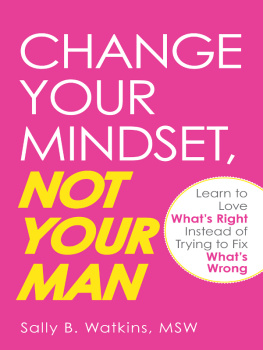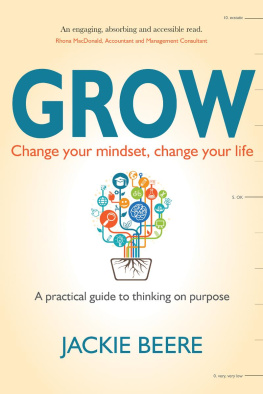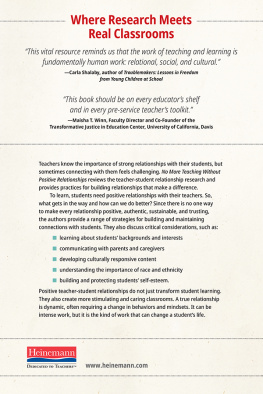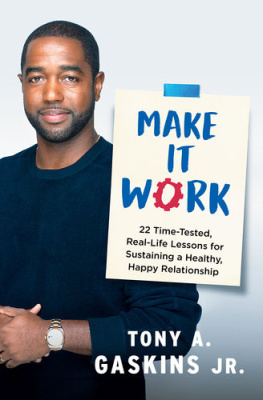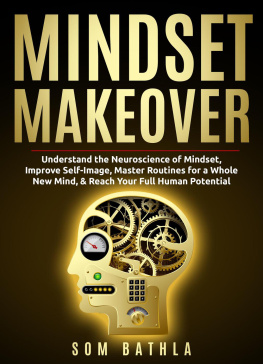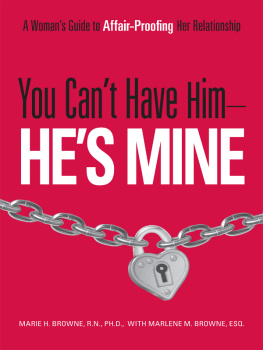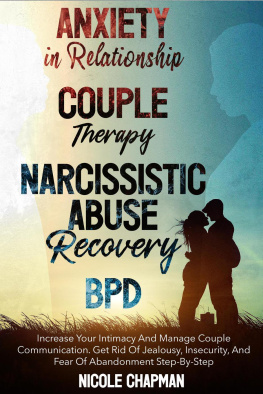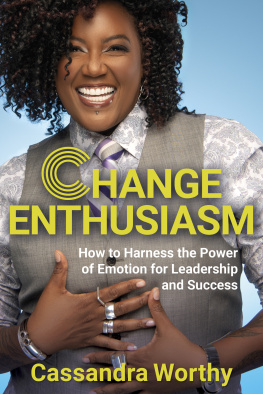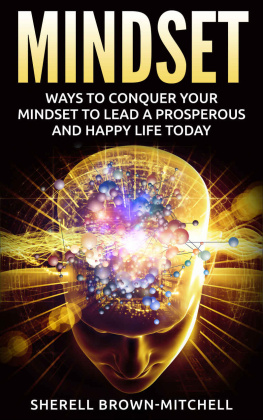
CHANGE
YOUR
MINDSET,
NOT
YOUR
MAN
Learn to
Love
Whats Right
Instead of
Trying to Fix
Whats
Wrong
Sally B. Watkins, MSW

Copyright 2009 by Sally B. Watkins
All rights reserved.
This book, or parts thereof, may not be reproduced in any
form without permission from the publisher; exceptions are
made for brief excerpts used in published reviews.
Published by
Adams Media, a division of F+W Media, Inc.
57 Littlefield Street, Avon, MA 02322. U.S.A.
www.adamsmedia.com
ISBN 10: 1-60550-142-5
ISBN 13: 978-1-60550-142-0
eISBN: 978-1-44051-331-2
Printed in the United States of America.
J I H G F E D C B A
Library of Congress Cataloging-in-Publication Data
is available from the publisher.
This publication is designed to provide accurate and authoritative information with regard to the subject matter covered. It is sold with the understanding that the publisher is not engaged in rendering legal, accounting, or other professional advice. If legal advice or other expert assistance is required, the services of a competent professional person should be sought.
From a Declaration of Principles jointly adopted by a Committee of the
American Bar Association and a Committee of Publishers and Associations
Many of the designations used by manufacturers and sellers to distinguish their product are claimed as trademarks. Where those designations appear in this book and Adams Media was aware of a trademark claim, the designations have been printed with initial capital letters.
This book is available at quantity discounts for bulk purchases.
For information, please call 1-800-289-0963.
CONTENTS
Introduction
Avoiding Pain Creates More
EmpathyMake the Connection
Get Through the Hard Stuff
INTRODUCTION
M any women feel that the way to fix a problem is to confront their man, reveal their feelings, and ask for what they want to change. If youve tried this typical tactic, you may have already discovered that in most cases one of two things happened: (1) complaining or criticizing him only made the problem worse, or (2) things improved for a little while and then went back to the way they were before. In this book I will share what Ive learned from a lifetime of my own relationships, and from the hundreds of clients who have trusted me to guide them to a happier, more fulfilling place. Unlike other self-help books or couples counseling, my approach offers some breakthrough beliefs and processes.
Relationships Start Backward
Perhaps because of humans strong biological need to maintain the species, we are at the peak of our relationship fervor when we first meet and feel attracted to each other. After a while, however, the best behavior that you wore in the early stages of courtship relaxes into something more natural, and the powerful brain chemistry that provided a sense of euphoria, heightened attachment, and excitement dissipates. You may be in the early stages of your commitment, having moved in together or married, when the hard work of the relationship begins. The powerful projections put forth by both partnersthat this person is perfect, the ideal, a soul matedisappear and you may believe that they have changed.
For example, my client Laurie remembers the terrible pain she felt when it seemed all too apparent that her whirlwind romance with Quinn had settled into a familiar pattern after two years of marriage. He sits through dinner preoccupied with work and talks about all the technical problems he is having with some device there. He drinks the rest of the bottle of wine after I consume just a few ounces. He has nothing personal to say to me. Im not interested in sex when he comes to bed after watching TV all night. I feel like Ive been installed as the wife and he can go back to his real priorities. Its devastating. Laurie cries as she tells me these painful revelations and, like most in long-term relationships, there have been countless tears. This is the point in the process where it seems as if everything has changedand in fact it has changed.
You Are in Good Company
Romantic movies, romance novels, TV sitcoms, love-oriented music lyrics, and reports of famous people coupling and uncoupling all reflect societys preoccupation with finding a perfect mate and creating a powerful and lasting love bond. Those who are frustrated believe they are in the minority, when in fact they are more often the norm. You may be saying, Wait a minute, isntit right to expect that a partner will meet my needs in the relationship?Isnt that what we were promised? The short answer is no. Life hands us a certain number of pains, upsets, problems, and pitfalls. A relationship is a risk: an adventure with no guarantees.
Some women have given up trying to make things better and live in continual grief and despair of what might have been. Most try to improve their situation by arguing and confronting, crying and complaining, hoping and waiting, or eventually by separating, divorcing, or by having affairs and looking outside their relationship for whats missing. Some go to counseling only to find out that the solution to their conflict isnt easily available, or that the process of bringing all the problems and bad feelings into the open actually makes the hurt, anger, and ultimately the relationship worse. Does this sound like you? This book is for you if:
You are disappointed with your current relationship.
You ended previous relationships because he didnt measure up to what you wanted.
You have failed to fix your relationship by explaining to him what you need and want to be happy.
You have tried self-help books and couples counseling but they didnt correct the problem.
He seems to improve for a while after you complain to him, but eventually goes back to his old ways.
You argue with him about his behavior and both of you end up feeling angry, upset, and distant.
You feel hopeless about changing him to be the way you wantthe way you believe he was when you first met.
You are sick and tired of always feeling angry, negative, hurt, upset, and irritated about your relationship.
You view other women as happier in their relationship and more successful in creating a relationship than you have been.
You believe that he has the ability to be a better partner but is too lazy or indifferent, or has other priorities.
It feels as though you are the only one trying to improve the relationship.
Most of your relationships end up the same way, with the same types of problems or issues, even though they seem different at first.
Your partner doesnt see the same problems in the relationship that you do.
You wonder if your relationship is salvageable or if its just too far gone.
Consider a Relationships Purpose
I want to propose something radical: That the purpose of a relationship is not to make you happyno one person can or should be expected to do thatbut rather to help you evolve and grow in character and strength and support your being in the world. A relationship shows you your own issues, your own psychological work, and what you need to become for your own maturity. A good relationship is not out there for you to find in the form of a perfect mate, but inside of you in the form of a stronger, more resilient self. If you leave a relationship without coming to terms with your issues there is a high likelihood that you will attract and form another very similar relationship in the future.
Next page
